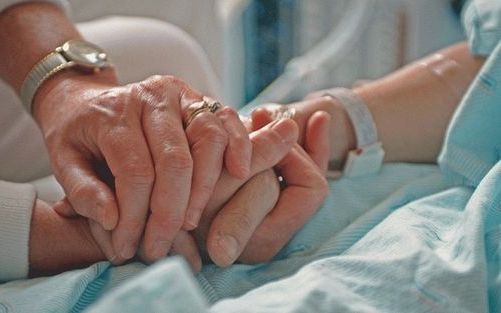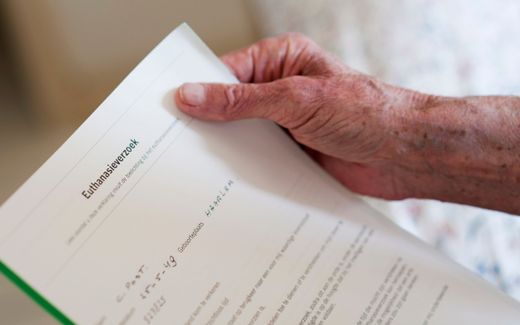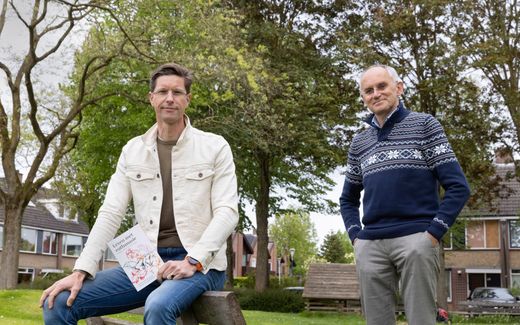Euthanasia bill Austria leaves questions open

Good palliative care can help many suffering people. Photo Flickr, Faith Hospice of Oklahoma
Central Europe
To say that everybody welcomes the new proposal for assisted suicide in Austria is too much. But it seems fair to say that the resistance is not very strong. However, there is still some inconvenience.
"Nobody speaks about pain relief", says palliative care specialist Rudolf Likar to the Katholische Presseagentur Österreich. The vice-president of Katholische Aktion (KA) in Kärnten finds that astonishing.
High-quality palliative care could prevent a lot of the need for euthanasia, Mr Likar thinks. "If there is human warmth, the demand for euthanasia would become the exception."
Part of self-determination
The Austrian government came with a bill for assisted suicide last Saturday. The background of this lies in a verdict of the Constitutional Court from late 2020. In that verdict, the judges said that the ban on assisted suicide is unconstitutional since it contradicts human self-determination.
The court said that the ban should be lifted in 2022. That means that the bill has to be debated and voted about in 3 months.
The bill is clearly no proposal for euthanasia as it is legislated in the Netherlands, Belgium and Luxembourg. The "Sterbeverfügungsgesetz" is meant to "facilitate dying" but no death on request. It is only assisted suicide, no active euthanasia. The new law doesn't apply to those who cannot take a poison themselves since the doctor is only allowed to supply that, not to administer it.
Dutch were very critical
When the Dutch government came with the first bill on euthanasia around the year 2000, almost all churches and Christian organisations were highly critical. That is not the case in Austria, perhaps partly because the present proposal is not going as far as the Netherlands.
The bill guarantees that nobody is obliged to cooperate with suicide. Ann Parr, the general secretary of Caritas Österreich, calls that very important for her and her organisation. "Our position is very clear: we support till death and in death, by we don't assist in taking life", she says to Katholische Presseagentur Österreich. Also the pharmacist is not obliged to sell the lethal drugs.
The Catholic hospitals will remain to give priority to the protection of life, says the spokesperson of the Österreichische Ordenskonferenz. Every 5th hospital bed in Austria belongs to a hospital run by such an organisation. The secretary of the Ordenskonferenz asks attention for pain relief and other therapy to give life quality "till the latest breath", also to the Katholische Presse-Agentur.
12 weeks waiting time
There is a positive affirmation for the 12 weeks waiting time between the first meeting with an attendant and the actual moment that a drug can be bought from the pharmacy. But there is criticism that no psychologist is needed for those meetings. In an article in Die Presse the columnist Anne-Catherine Simon says: "Old-age depression is difficult to recognise. Surveys from other countries show how much loneliness is contributing to the desire for euthanasia. If this is not corrected, only the fragile hope remains that doctors will once again consult psychologists in case of doubt."
According to Rudolf Likar, it is wrong that the new law should also apply to psychiatric patients. "That is no illness that should lead to death." Likar thinks that something else has to be done with those people.

He thinks of assisted suicide as a "spiritual virus" against which society should be protected. All parts of society –including churches– should reach a helping hand to people in this need.
From Christian organisations, all voices are positive about the extra money that goes to palliative care and hospices. Parr: "We know that in countries where the palliative care and hospice support is very strong, the wish to end one's life is very weak." According to Parr, palliative care in hospices is mainly floating on gifts nowadays.
Last help
The Austrian society for death on request sees the bill as a good start for more. They think it is "discriminatory" that the government doesn't choose to legalise death on demand. Assisted suicide is only in reach for people who are still able to do something. That might lead to pressure to kill yourself quickly to prevent a situation in which you can no longer do that. The 12 weeks waiting time is also "not justifiable" in the eyes of society, according to an article on APA-OTS.
Related Articles







